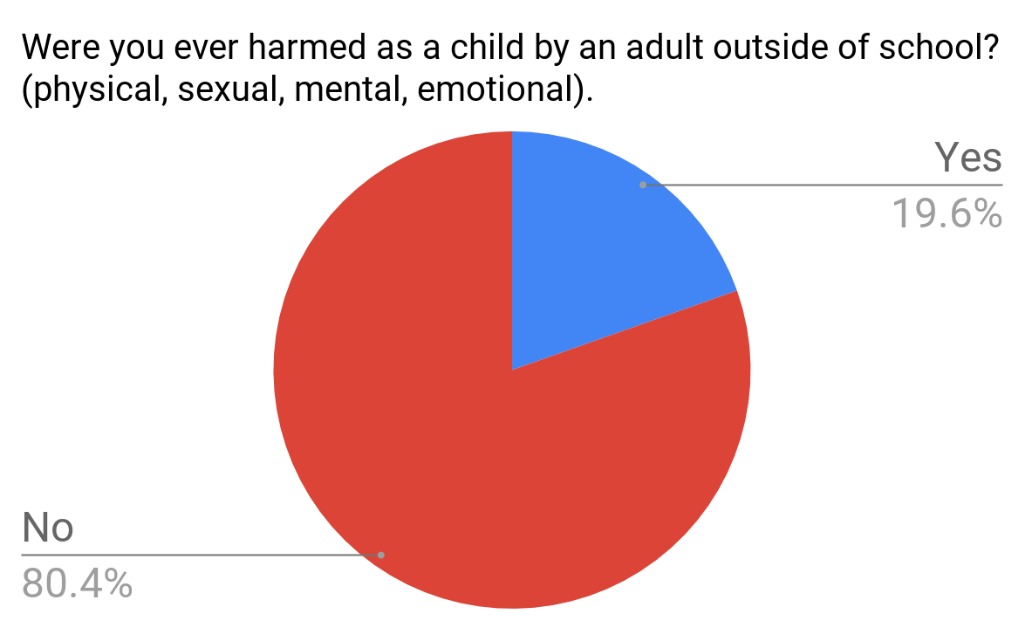Note: This post is about Child Sexual Abuse; but it does not contain any graphic descriptions. A list of resources follows.
What is Child Sexual Abuse?
Our children grow and learn from the adults around them, especially those that they trust and respect. Adults are responsible for supporting children and providing them safe nurturing environments. Unfortunately, our children also live in a world where some adults engage in a range of actions known as Child Sexual Abuse (CSA).
CSA may or may not involve physical contact. It can include grooming (making a child more susceptible to sexual advances, such as in an online chat room), indecent exposure (exposing genitals), exploitation (victimizing a minor for profit/advancement, such as using children for pornography or prostitution), and sexual assault (using children for sexual gratification, such as rape or inappropriate touch).
Sikh Family Center regularly works with adults who are victims-survivors of abuse and their families. Our work is confidential and our strategies are driven directly by those we serve: towards their empowerment. Details of Sikh Family Center cases always remain confidential and private, but our experiences and data mirror the general global statistics and trends:
- Most CSA is committed by family members or close acquaintances of the children.
- Nearly 1 out of 3 abusers are relatives such as fathers, uncles, brothers.
- Only 1 out of 10 abusers are strangers.
- Most abusers are men.
CSA not only interrupts–and at times destroys–a child’s childhood. The effects of CSA carry on into adulthood, oftentimes despite the person’s internal strength, belief in Waheguru, support system, or resilience. Children who survive CSA may experience long-term mental and physical health effects such as depression, Post Traumatic Stress Disorder (PTSD), anxiety, eating disorders, low self-esteem, irritable bowel, fibromyalgia, chronic pain and chronic fatigue syndromes, and/or may engage in self-harm. In addition, they are also prone to further victimization in adulthood as well as to high-risk behavior, including, smoking, alcohol, drug use and unsafe sex.
CSA in our community
Many of our Sikh and Punjabi families pride themselves in being close-knit, open-doored and welcoming, and in teaching our kids to show respect, even deference, to all adults. These cultural values define us. But these very values may facilitate abuse by someone looking to prey on a child.
Our community prides itself for the spaces we have built to connect with our roots, such as gurudwaras, samagams, gurmat camps, Khalsa schools, keertan and speech competitions. These very spaces can also be ripe for abuse by someone looking to prey on a child.
Sikh Family Center’s survey indicates that 1 in 5 Sikhs in the US have experienced CSA.

In light of recent revelations, some of us may think that we would be able to “spot” a predator. When a case becomes public, we think that this person could never be our uncle, our teacher, our doctor, our neighbor, or our friend. There are false biases such as thinking perpetrators are visibly disturbed, or mostly recent immigrants, or those who are not integrated/assimilated, or those unmarried. Unfortunately, our experience at Sikh Family Center proves that CSA is widespread–across lines of immigration, income, education, perceived religiosity or leadership status–even if not widely documented or discussed.
Perpetrators of CSA use trust as their weapon. A predator figures out ways to gain a child’s trust, and/or their parent’s trust. They groom children and their families, by giving them time, attention and gifts in ways that make the predator appear selfless. At Sikh Family Center, we witness regularly how the real work is very close to home — or even at home.
As a community, we must do better by our children. Why wait another day?!
Responding to CSA
Mentally plan how you would respond.
Given the statistics, it is not far-fetched that you’ll be called to act on a situation of CSA one day. Consider, if you are sitting in a living room, and a survivor approaches you to tell you what your dad/uncle/neighbor/granthi did, what are you going to do then? Will you support the victim no matter what? No matter how well you know the accused? No matter the potential ramifications to yourself, your family, your community?
Be honest with yourself.
If you doubt you would be able to take a stand when the stakes are high, make yourself aware of the right resources, so you can share them with someone in distress.
Commit to Never Being Complicit.
Children who derive their entire social life from one large group, such as their family, school, gurudwara or sangat, may be fearful of speaking out and ostracizing themselves from everybody in their life. Promise yourself to never ever make them feel worse than when they came to you. No matter who the alleged abuser is, commit to making sure you are not part of any plan to silence the child.
Talking to Children
***An Open Call to All***
Share with us (via text or video, anonymously or not) how YOU ensure your children, or children in your life, have the correct information and resources for awareness about Child Sexual Abuse. What strategies do you use to empower your children so that they know they can talk to you, or another trusted adult, as soon as they encounter something confusing, uncomfortable or inappropriate?
Remember:
- Talking to children means taking away key tools used by abusers: shame, silence, confusion, and fear. It does not mean blaming children for the abuse.
- Talking to children means empowering them early. Their awareness could even help another child. It does not mean scaring them.
- Talking to children means talking to all children, of all ages, at different stages of their development. It does not mean talking only to girls.
- Talking to children has to be followed by speaking out when we suspect something is wrong. It may mean confronting adults we worry are abusive, or finding trusted allies who can strategize to do so on your behalf. Talking does not mean the end of our commitment as Sikh adults. We must also make sure we take action when a child does come to us.
As a community, we must do better by our children. Why wait another day?!
Resources
Child abuse: National Child Abuse Hotline
1.800.4.A.CHILD (422.4453)
www.childhelpusa.org
Domestic Violence: The National Domestic Violence Hotline
1.800.799.SAFE (7233)
thehotline.org
Gay, Lesbian, Bisexual, Transgender, Queer and Questioning Youth: GLBT National Help Center, Youth Talkline
1.800.246.PRIDE (7743)
Rape/ Sexual Assault: Rape, Abuse and Incest National Network (RAINN)
1.800.656.HOPE
www.rainn.org
National Sexual Assault Hotline
800-656-HOPE, Option #1 (24 hours)
Suicide: National Hopeline Network
1.800.273.8255
https://suicidepreventionlifeline.org/
Self-Injury: S.A.F.E. Alternatives
1-800-DON’T-CUT (366-8288)
www.selfinjury.org
Substance use: 24/7 Treatment Referral line
1.800.662.HELP (4357)
www.samhsa.gov
Sikh Family Center (non-Emergency) Helpline
866-SFC-SEWA (732-7392)
www.SikhFamilyCenter.org
